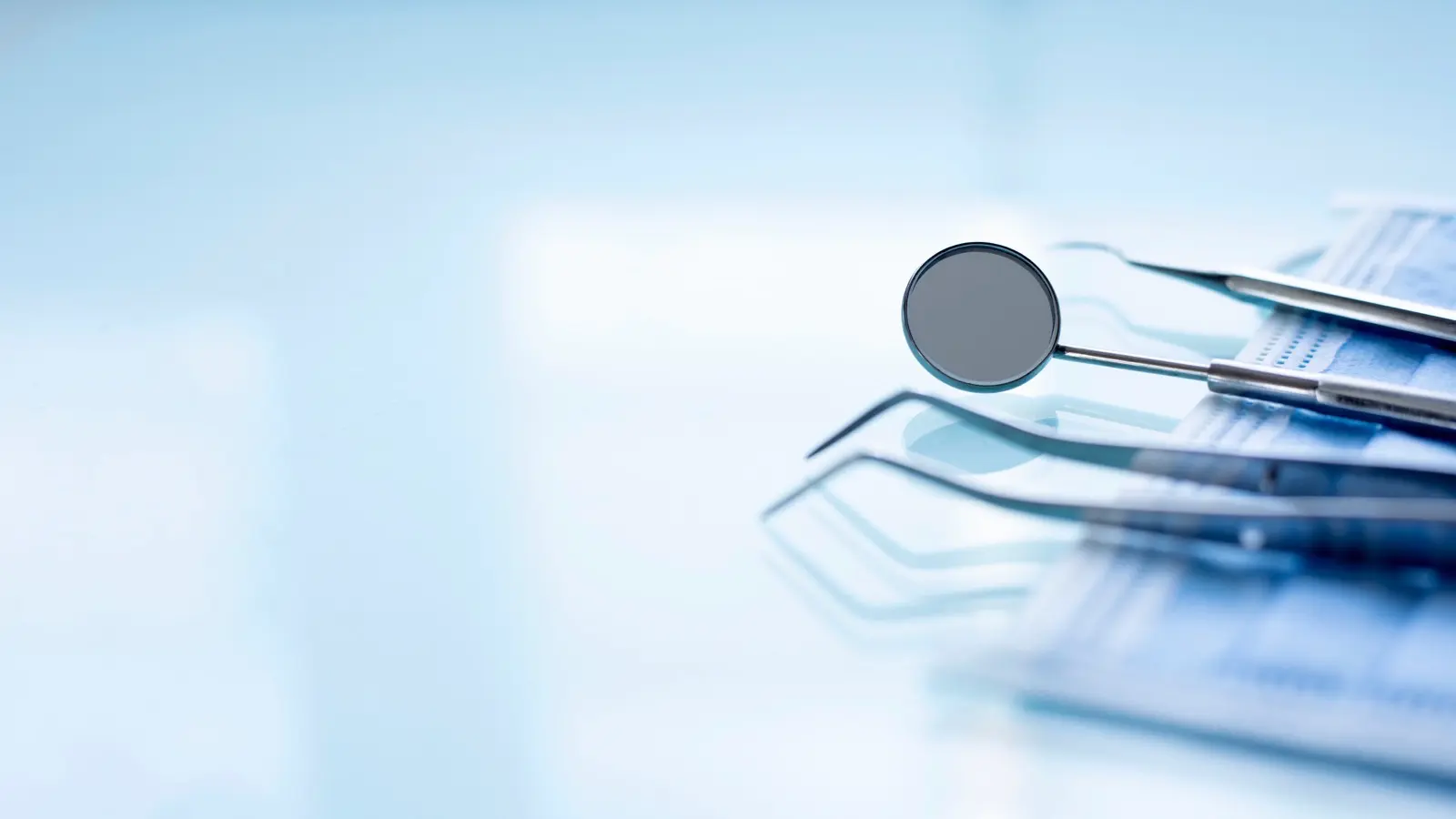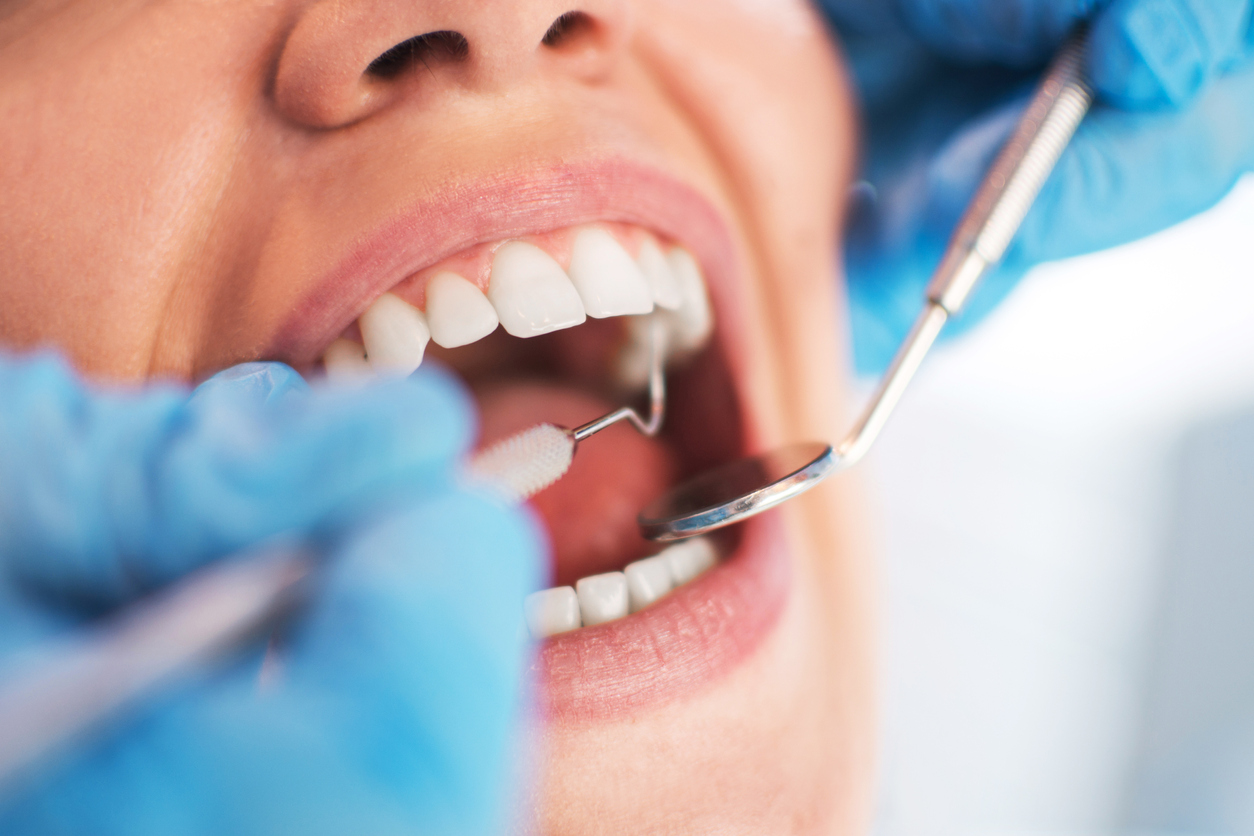It would be best if you visit your friendly local dentist for a tooth cleaning every six months. Your dentist will examine the overall condition of your teeth and gums during this appointment and take care of any problems that require attention. The dental hygienist or dentist performing your checkup will also clean your teeth.
Why Professional Teeth Cleaning Is Important
Your teeth are protected and strengthened by the calcium and other ingredients in saliva. It constantly circulates in your mouth, coming into contact with your teeth. Although it has beneficial qualities, calcium deposits can also be formed on your teeth. These deposits might be black, brown, or tooth-colored. These accumulations eventually transform into calculus, also known as tartar. Bacteria can flourish and spread quickly adjacent to your gums in the presence of tartar.
Your mouth may harbour harmful bacteria even when tartar is hidden from your view. Your professionally educated dentist or hygienist will have the ability to identify tartar, clean your teeth to remove it and leave them smooth so that bacteria cannot adhere to them.
Are you tense in anticipation of your visit with us? If so, there’s no need to be concerned. Instead, we want to ensure you are as relaxed and ready as possible. Because of this, we are prepared to outline each process involved in professional teeth cleaning.
How long does it take to clean your teeth?
30 minute to one hour can pass during a tooth cleaning. You will relax in a comfy dental chair during this time as we inspect your teeth. Before polishing your enamel with a mildly abrasive paste, we’ll also remove dental plaque and tartar.
If X-rays are required, your appointment can go over its allotted time. Likewise, we might need to talk about available treatment choices if a problem is found.
Initial Oral Examination
The dental hygienist first uses a tiny mirror to see inside your mouth. Then, they will contact one of our dentists if they find any noticeable problems. However, if they discover something significant, they can stop cleaning altogether. They would then immediately speak with one of our dentists to determine the best course of action.
Removal of Plaque and Tartar
At-home tooth brushing and flossing are effective ways to eliminate dental plaque. However, plaque concealed along the gum line and between teeth can be challenging to remove. Additionally, tartar-like plaque can only be removed by a dental specialist.
Compared to what you can accomplish at home, a professional teeth cleaning is more thorough. This is possible because your hygienist has the ability to gently remove plaque and tartar using a unique tool called a scalar.
Polishing Teeth
Your teeth will then be polished with a specialized, high-powered brush and grittier tooth polish. The hygienist will ask you to select your preferred taste of tooth polish before beginning. Cleaning your teeth shouldn’t ever hurt. Therefore, you don’t need to be startled by the toothbrush’s whirring.
Flossing Between Teeth
The dental hygienist will clean your teeth as the final procedure. Any plaque that might be hiding between teeth will be removed by doing this. In addition, your dental hygienist can identify the areas of gum bleeding by flossing.
Rinsing
Your dental hygienist will now ask you to swish in water. The water from your mouth is removed using suction but any remaining tooth polish is removed during the rinse process.
Final Checkup with Dentist
One of our dentists will visit you after your professional teeth cleaning is complete to perform the last examination. You’re good to go if they find no problems with your dental health.
Additionally, the dentist will be ready to respond to any queries you may have. After that, we’ll ask you to schedule your subsequent oral examination and cleaning within the following six months.
Having a stunning, healthy smile is one of the side effects of cleaning your teeth. If a patient has additional oral health conditions, they may also experience bleeding gums. Patients with gum disease, for instance, could feel bleeding gums when they floss.
Cleaning your teeth is crucial because it enables us to identify oral health problems before they have a chance to get worse.
Your teeth can withstand decay and damage better if you follow a thorough oral hygiene regimen. But is it sufficient? For optimal dental health, brushing and flossing should be done frequently. However, they are ineffective against hard-to-remove tartar and plaque. Due to this, regular professional dental cleanings are essential. Where your regular toothbrush cannot, your dental care specialist can.
How Much Does a Dental Cleaning Cost?
Well, the price of a dental cleaning often depends on your oral health, where you live, and the extent of the therapy you need. In addition, your mouth is examined in quadrants when you attend dental practice. Given the above mentioned considerations, you might be required to pay $100 or more for each quadrant. It is advised to ignore the cost of a dental cleaning, though. Numerous dental insurance providers cover these cleaning procedures. So don’t let your concerns about how expensive dental cleaning is be a distraction.
What Can You Gain?
Absence of Halitosis
Bad breath may be caused by stubborn plaque. Your dentist can quickly and effectively remove the plaque from your mouth to leave it sparkling clean. However, you should contact a dental hygienist if your foul breath does not seem to improve. It can indicate a severe medical condition that must be treated immediately.
A Bright Smile
When done correctly, teeth cleaning can brighten your smile. If you have coffee or smoke cigarettes regularly, this is particularly true. Stains from these vices can cause your teeth to turn yellow over time. A professional cleaning will eliminate many surface stains on your teeth, resulting in a brighter, whiter smile.
Prevention of Gum Disease
Gum disease is one of the most common dental problems people face worldwide. The first stage of gum disease is gingivitis, an inflammation of your gums. Gingivitis can often be resolved with improved oral hygiene habits and more regular professional teeth cleanings. However, if left untreated, gingivitis can progress to periodontitis. Periodontitis is a severe gum infection that can lead to tooth loss. To prevent gum disease, you must visit your dentist regularly for teeth cleanings.
Improved Overall Health
Did you know that your oral health is linked to your overall health? That’s right! Research has shown a correlation between poor oral health and other severe medical conditions like heart disease, stroke, and diabetes. Keeping your mouth healthy can reduce your risk of developing these conditions. Regular teeth cleanings are an essential part of maintaining good oral health.
A Cost-Effective Alternative
In the long run, getting your teeth cleaned by a professional may be more affordable. Your risk of developing tooth damage can be decreased by routine cleaning, which is a preventative step. By skipping regular cleaning sessions, you risk developing dental problems requiring pricey procedures and surgery. Avoid missing your cleaning appointments to save money!
Have Your Appointment With Us!
Don’t miss your cleaning appointments now that you know how important cleaning your teeth is. Are you searching for the top dental cleaning service? Please make the most of our dental care services by appointment with River District Smiles Dentistry now!


